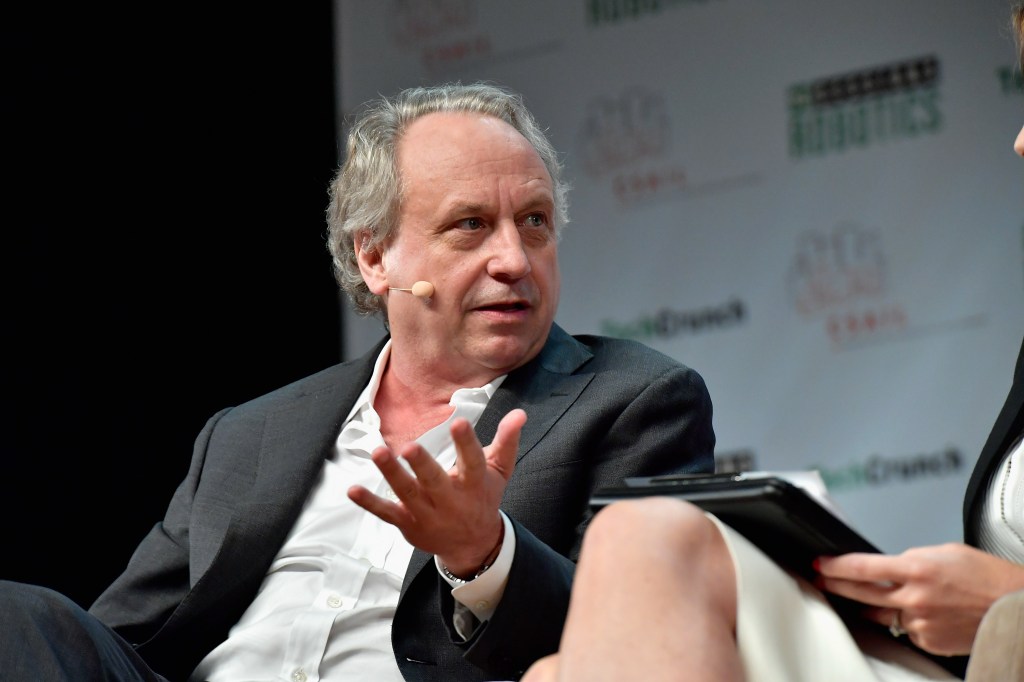
AI that’s smarter than humans? Americans say a firm “no thank you.”
Exclusive: 63 percent of Americans want regulation to actively prevent superintelligent AI, a new poll reveals.
AI that’s smarter than humans? Americans say a firm “no thank you.”
Exclusive: 63 percent of Americans want regulation to actively prevent superintelligent AI, a new poll reveals.- By Sigal Samuel
- on September 19, 2023 1:20 pm
:no_upscale()/cdn.vox-cdn.com/uploads/chorus_image/image/72665364/sam_altman_GettyImages_1258549651.0.jpg)
Sam Altman, CEO of OpenAI, the company that made ChatGPT. For Altman, the chatbot is just a stepping stone on the way to artificial general intelligence.
SeongJoon Cho/Bloomberg via Getty Images
Major AI companies are racing to build superintelligent AI — for the benefit of you and me, they say. But did they ever pause to ask whether we actually want that?
Americans, by and large, don’t want it.
That’s the upshot of a new poll shared exclusively with Vox. The poll, commissioned by the think tank AI Policy Institute and conducted by YouGov, surveyed 1,118 Americans from across the age, gender, race, and political spectrums in early September. It reveals that 63 percent of voters say regulation should aim to actively prevent AI superintelligence.
Companies like OpenAI have made it clear that superintelligent AI — a system that is smarter than humans — is exactly what they’re trying to build. They call it artificial general intelligence (AGI) and they take it for granted that AGI should exist. “Our mission,” OpenAI’s website says, “is to ensure that artificial general intelligence benefits all of humanity.”
But there’s a deeply weird and seldom remarked upon fact here: It’s not at all obvious that we should want to create AGI — which, as OpenAI CEO Sam Altman will be the first to tell you, comes with major risks, including the risk that all of humanity gets wiped out. And yet a handful of CEOs have decided, on behalf of everyone else, that AGI should exist.
Now, the only thing that gets discussed in public debate is how to control a hypothetical superhuman intelligence — not whether we actually want it. A premise has been ceded here that arguably never should have been.
“It’s so strange to me to say, ‘We have to be really careful with AGI,’ rather than saying, ‘We don’t need AGI, this is not on the table,’” Elke Schwarz, a political theorist who studies AI ethics at Queen Mary University of London, told me earlier this year. “But we’re already at a point when power is consolidated in a way that doesn’t even give us the option to collectively suggest that AGI should not be pursued.”
Building AGI is a deeply political move. Why aren’t we treating it that way?
Technological solutionism — the ideology that says we can trust technologists to engineer the way out of humanity’s greatest problems — has played a major role in consolidating power in the hands of the tech sector. Although this may sound like a modern ideology, it actually goes all the way back to the medieval period, when religious thinkers began to teach that technology is a means of bringing about humanity’s salvation. Since then, Western society has largely bought the notion that tech progress is synonymous with moral progress.In modern America, where the profit motives of capitalism have combined with geopolitical narratives about needing to “race” against foreign military powers, tech accelerationism has reached fever pitch. And Silicon Valley has been only too happy to run with it.
RELATED
Silicon Valley’s vision for AI? It’s religion, repackaged.
AGI enthusiasts promise that the coming superintelligence will bring radical improvements. It could develop everything from cures for diseases to better clean energy technologies. It could turbocharge productivity, leading to windfall profits that may alleviate global poverty. And getting to it first could help the US maintain an edge over China; in a logic reminiscent of a nuclear weapons race, it’s better for “us” to have it than “them,” the argument goes.But Americans have learned a thing or two from the past decade in tech, and especially from the disastrous consequences of social media. They increasingly distrust tech executives and the idea that tech progress is positive by default. And they’re questioning whether the potential benefits of AGI justify the potential costs of developing it. After all, CEOs like Altman readily proclaim that AGI may well usher in mass unemployment, break the economic system, and change the entire world order. That’s if it doesn’t render us all extinct.
In the new AI Policy Institute/YouGov poll, the “better us than China” argument was presented five different ways in five different questions. Strikingly, each time, the majority of respondents rejected the argument. For example, 67 percent of voters said we should restrict how powerful AI models can become, even though that risks making American companies fall behind China. Only 14 percent disagreed.
Naturally, with any poll about a technology that doesn’t yet exist, there’s a bit of a challenge in interpreting the responses. But what a strong majority of the American public seems to be saying here is: just because we’re worried about a foreign power getting ahead, doesn’t mean that it makes sense to unleash upon ourselves a technology we think will severely harm us.
AGI, it turns out, is just not a popular idea in America.
“As we’re asking these poll questions and getting such lopsided results, it’s honestly a little bit surprising to me to see how lopsided it is,” Daniel Colson, the executive director of the AI Policy Institute, told me. “There’s actually quite a large disconnect between a lot of the elite discourse or discourse in the labs and what the American public wants.”
And yet, Colson pointed out, “most of the direction of society is set by the technologists and by the technologies that are being released … There’s an important way in which that’s extremely undemocratic.”
He expressed consternation that when tech billionaires recently descended on Washington to opine on AI policy at Sen. Chuck Schumer’s invitation, they did so behind closed doors. The public didn’t get to watch, never mind participate in, a discussion that will shape its future.
According to Schwarz, we shouldn’t let technologists depict the development of AGI as if it’s some natural law, as inevitable as gravity. It’s a choice — a deeply political one.
“The desire for societal change is not merely a technological aim, it is a fully political aim,” she said. “If the publicly stated aim is to ‘change everything about society,’ then this alone should be a prompt to trigger some level of democratic input and oversight.”














